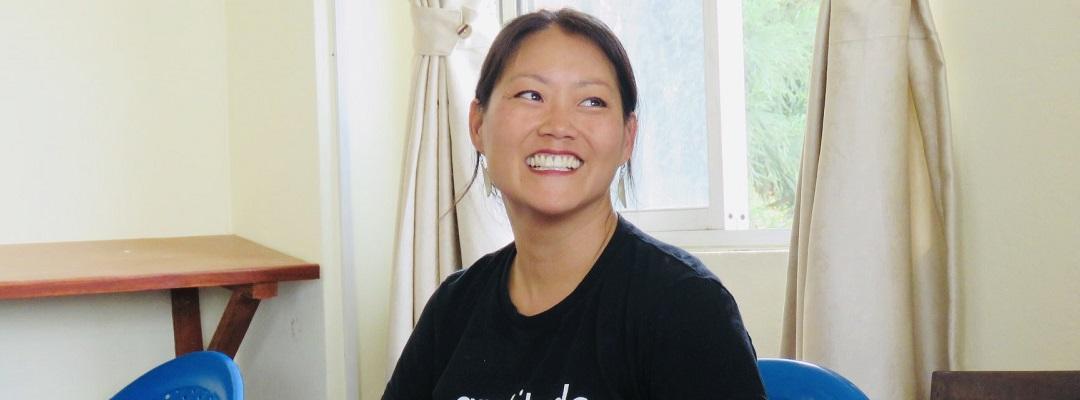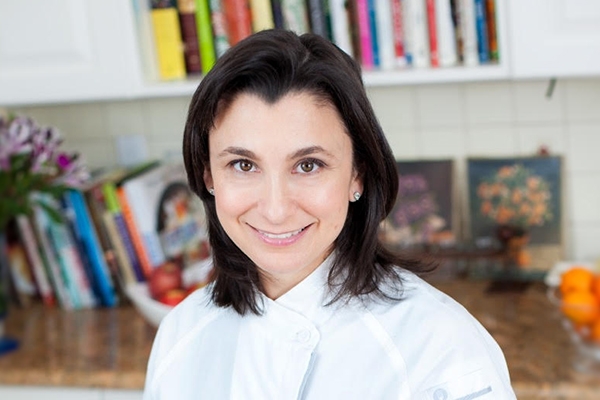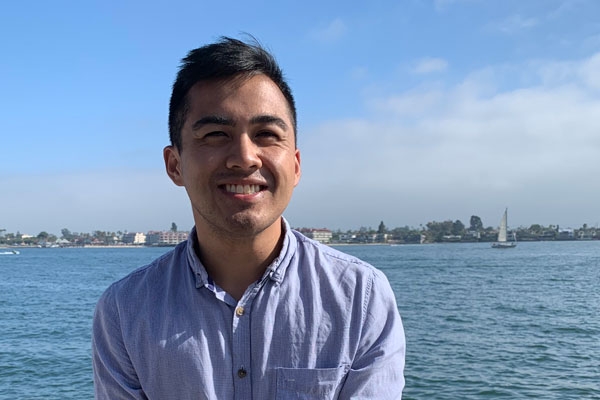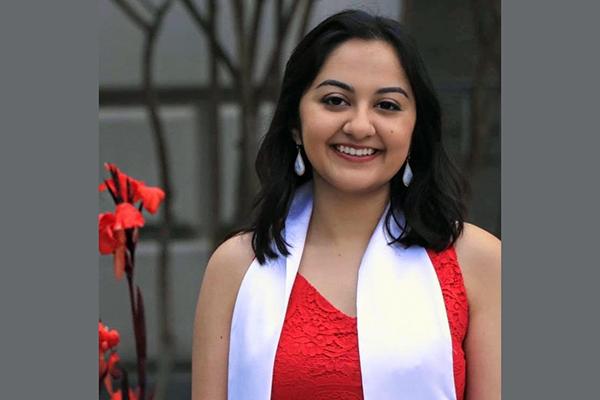From day one, Amy Paulson has experienced trauma. Abandoned shortly after being born in Seoul, South Korea, Amy was then adopted by a family in America months later.
She grew up showing signs of internalized distress—suicidal depression, anxiety and bulimia—all hidden behind a facade of what she calls an “overachieving perfectionist.”
Yet back then, mental health professionals never even mentioned the word “trauma” as a possible cause.
The Past Influences Her Future
Originally from the Midwest, Amy’s parents left the cold for the Arizona desert, settling in Phoenix when Amy was three years old. A four-year Arizona Board of Regents academic scholarship recipient, she attended Arizona State University’s W. P. Carey School of Business and graduated in 1999 with a bachelor’s degree in accounting.
At the time, she didn’t realize her overachiever tendencies and “safe” career choice were coping mechanisms for her childhood trauma.
“Although I was passionate about writing, I changed my major from journalism to accounting out of fear,” Amy explains. “I heard my dad’s pleas to get a good, stable job replay over and over in my head. The overachiever perfectionist in me—which I later learned was a coping response to trauma—opted for the safety and security of accounting over the adventure and excitement of writing stories about people.”
Fast-forward to Amy in her 30s and working in the finance department at eBay’s European headquarters in Switzerland. She went to visit her husband in Seoul—who had gone there for work—and stopped by the orphanage where she had lived as a baby.
The visit resulted in a call to Amy’s biological family that led to an email a year later from her biological sister—and changed Amy’s life.
Amy returned to Korea and reconnected with her birth mother, father and siblings. There, she learned of her family’s history of trauma—her mother was also an orphan and there was a long family history of dealing with war and gender-based violence.
“My family’s wounds never had a chance to heal before they were passed on to the next generation,” Amy says.
After years and years of trying to understand her past and her pain, she finally understood that her trauma story was really a healing story.
“Not only had I survived, but I also realized that my wounds gave birth to my superpowers: profound empathy, compassion and connection to others in their pain and suffering, in their humanity,” she says.
Amy returned to Switzerland and quit her corporate job. In September 2011, she co-founded Gratitude Alliance, a San Francisco Bay Area nonprofit that supports survivors around the world to help break the cycles of trauma and harm.
The Difficult Task of Tearing Down the Walls
“Gratitude Alliance works to democratize healing and resilience resources for communities around the world who are disproportionately impacted by trauma,” Amy explains. “We do this by equipping local leaders with the knowledge and skills to heal themselves and others, disrupt cycles of trauma and harm, and break the stigma associated with trauma and mental health.
“We train educators, health workers, police, faith leaders, grandmothers, social workers, entrepreneurs, activists and everyday people from all backgrounds in trauma-informed and healing-centered care. They, in turn, create a ripple effect by healing themselves, supporting survivors and training others to do the same.”
In 2015, Amy tapped into her accounting background to also become a founding Board Director and the treasurer at the now-defunct Concrn. The organization was at the intersection of compassion and technology, empowering the community to report behavioral health crises in San Francisco’s Tenderloin neighborhood via a mobile app and to connect those who needed help with trained and compassionate peer responders.
“I’d started doing work with youth when I was in high school,” Amy says. “But because I was too busy covering up my wounds—trying to convince myself that I was ‘normal’ like everyone else—I didn’t notice the patterns over the years. For nearly three decades, I was involved in supporting orphaned and foster youth as a volunteer, a donor, a board member, a program manager and a grant maker.
“Serving in those different roles helped me understand just how complex this work is. Healing from trauma is often the missing link to sustainable transformation. I realized that this left a gaping need and opportunity to help organizations that were already doing the work on the ground to support survivors in different ways—often through education and economic-empowerment programs—to have a deeper impact.”
Understanding Trauma-Informed Interventions
In May 2018, Amy chose our courses in trauma-informed counseling to gain the skills to help herself and others work through their trauma.
“I was looking for a program that wasn’t designed just for licensed clinicians, but that would be applicable for professionals from different backgrounds and work settings,” Amy tells me.
“I wanted a combination of both theory and research, as well as practical application and experiential learning—something that seemed missing from other purely academic or clinical programs out there.
“The Professional Program in Trauma-Informed Interventions was a great fit.
“I really appreciated the small classroom sizes that afforded many opportunities for students to interact, connect and share their wisdom,” Amy continues. “I made a number of valuable connections throughout the program, including with a colleague who does very similar work to mine. We’ve stayed in touch. Sharing experiences with her over the years has been a gift and has supported my own self-care.
“I also met therapists, social workers, lawyers, addictions counselors, global trauma specialists, social justice advocates and more,” Amy enthuses. “They were all truly incredible people, representing so many different backgrounds and experiences. I felt honored to learn with and from them.”
And the curriculum?
“The courses that stood out for me were more experiential in nature, including Neurobiology of Complex Trauma with Stefanie Smith, where we learned a number of games that supported healing for different clients, and Integrating Mindfulness Into Your Professional Practice with Carley L. Hauck, where we learned and practiced different mindfulness exercises that we could then share with clients and do ourselves.”
Amy says she was able to apply the knowledge and integrate the resources from each of the courses into her work at Gratitude Alliance, training local leaders around the world to support trauma survivors.
How so?
“In Overview of Trauma-Informed Assessment and Intervention with Rick Nizzardini, we discussed the physical, mental, emotional, social and spiritual impacts of trauma,” says Amy. “We also break down these five areas of impact in Gratitude Alliance’s global workshops, and encourage participants to share the impact that they see in survivors in each category, given how differently trauma can show up in different cultures.
“In Trauma-Informed Care and Social Justice: Supporting Youth Impacted by Toxic Stress and Trauma with Nicola MacCallum, we learned about the impact of Adverse Childhood Experiences (ACEs). In my work in the United States for Gratitude Alliance, we now give participants of our programs specific information about the impact of ACEs and discuss the benefits and limitations of screening for ACEs.”
Learning How to Heal Never Ends
After completing our Trauma-Informed Interventions program, Amy earned a certificate in Global Mental Health: Refugee Trauma Recovery (HPRT) from Harvard University. She also recently began the Interpersonal Dynamics Facilitator Training Program (In Training) at Stanford University Graduate School of Business.
“I believe that the knowledge and certification gained from the Professional Program in Trauma-Informed Interventions supported my application to each of those programs. It was also very helpful foundational knowledge for the Harvard program, given that it was a medical program with a lot of focus on technical subject matter.”
Amy is using what she’s learned so far to heal others, near and far.
“I will continue to use the knowledge and skills that I learned from UC Berkeley Extension’s program in my work with diverse populations around the world,” she says.
“I also plan to continue my professional development by taking more courses in behavioral health sciences. Given the times we are living in, I think it’s clear that we can no longer ignore the intersectionality of social justice, oppression, identity and trauma.
“I am living proof that the antidote to ‘Hurt people hurt people’ is ‘Healed people heal people.’ Although I don’t think we are ever truly healed. We are just on journeys, where old wounds get exacerbated by new ones. At worst, we take out our hurts on others. But at best, we can break cycles in our own families and support others to do the same.”



